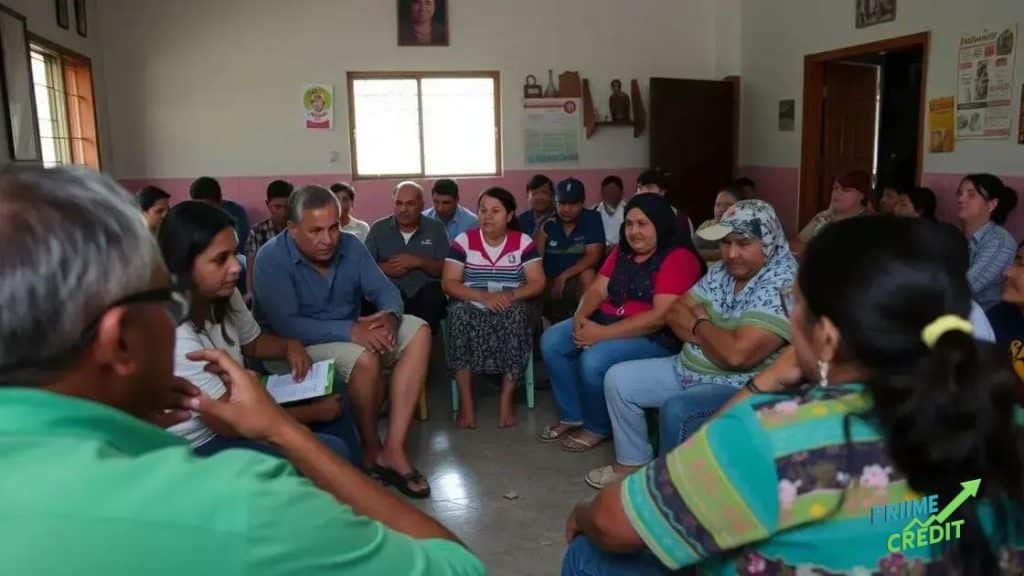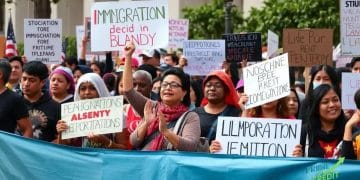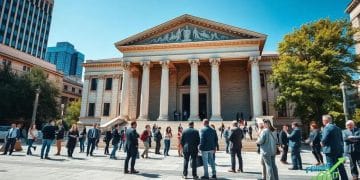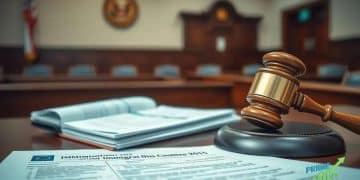Senator’s visit to El Salvador offers hope for deported residents

The senator’s visit to El Salvador offers hope for deported residents, aims to address the challenges faced by deported U.S. residents, fostering dialogue around legislative reforms and strengthening U.S.-El Salvador relations.
The senator’s visit to El Salvador to meet deported U.S. resident shines a light on the challenges faced by those affected by deportation. How does this visit influence the lives of individuals seeking connection to their homeland?
Background on the senator’s visit
The senator’s visit to El Salvador comes at a crucial time when many deported U.S. residents are seeking reconciliation with their roots. This trip not only highlights the importance of immigration reform but also sheds light on the personal stories behind the statistics.
Why the Visit Matters
This visit sends a strong message of support for deported residents. It emphasizes the need for a connection between the U.S. and El Salvador, particularly in the wake of challenging immigration policies. The senator aims to address the difficulties faced by these individuals, who often struggle with identity and acceptance.
Key Objectives of the Visit
- Engaging with communities affected by deportation.
- Highlighting personal stories to humanize immigration issues.
- Exploring legislative solutions to aid deported residents.
- Strengthening diplomatic ties between the U.S. and El Salvador.
In addition to these goals, the senator plans to listen to the residents’ concerns. By understanding their struggles, he can advocate for policies that better support them. The stories shared during this visit showcase resilience and hope, encouraging dialogue around immigration.
Additionally, fostering a partnership between the two nations can lead to greater opportunities. Businesses, community organizations, and the government can work together to improve the lives of deported residents. This potential collaboration could create pathways for legal support and resources to help them reintegrate into society.
Impact on deported residents
The impact on deported residents due to the senator’s visit is significant and multifaceted. Many individuals experience a range of emotions, including hope and concern as their stories gain visibility. This attention can lead to more support and resources for those trying to rebuild their lives after deportation.
Changes in Public Perception
As the senator engages with deported residents, public perception is likely to shift. Personal stories shared during these interactions highlight the human side of immigration. This visibility can foster empathy and understanding among the general public.
Potential Legislative Changes
- Increased advocacy for immigration reform.
- Legislation aimed at supporting deported residents.
- Efforts to improve conditions in El Salvador.
- Collaboration between U.S. and Salvadoran governments.
The hope is that these conversations can lead to changes that benefit those affected. Deportees often face challenges such as unemployment and lack of access to healthcare. By drawing attention to these issues, the senator can advocate for programs that help reintegrate these individuals.
This visit can also encourage community support in El Salvador for deported individuals. Local organizations might increase their efforts to assist through legal aid and social services. Building a network of resources can help deported residents stabilize their lives.
Voices of the deported: personal stories
The voices of the deported are vital in understanding the true impact of deportation. Each story carries unique experiences that highlight the complex nature of living away from home. Sharing these personal stories can humanize the immigration narrative and foster empathy among the public.
Real Experiences
Many deported individuals face a difficult adjustment when returning to a country they hardly know anymore. Their stories often reveal feelings of isolation, loss, and the struggle to reconnect with their cultural roots. These experiences underscore the emotional toll of deportation, showing that it is not just a legal issue but a deeply personal one.
Highlights of Their Stories
- Struggles to find employment and stability.
- Reconnecting with family members left behind.
- Adapting to a different social environment.
- Facing stigma from peers and society.
Every interview with a deported resident sheds light on resilience. For many, sharing their story is a way to reclaim their identity and empower others in similar situations. These voices emphasize the need for supportive measures and understanding from both governments and communities.
Listening to these personal accounts can inspire action. Stories of strength and hope illustrate the power of community support in overcoming obstacles. Encouragingly, some deported individuals have started organizations to assist others in similar circumstances, aiming to create networks of solidarity.
Legislative implications of the visit
The legislative implications of the visit by the senator to El Salvador are far-reaching and could pave the way for significant changes in immigration policy. This visit serves as a platform to discuss the pressing issues that deported U.S. residents face and the possible reforms needed to address their circumstances.
Proposed Reforms
During the visit, discussions around potential reforms aim to improve the lives of deported individuals. Lawmakers may consider measures that provide support for those returning to El Salvador and create pathways for legal residency in the U.S. for certain groups.
Key Legislative Topics
- Reevaluation of existing immigration laws.
- Establishment of programs that assist deported residents.
- Increased funding for community support services.
- Strengthening diplomatic relations to address migration issues.
It’s essential to recognize that these legislative discussions may also influence public opinion. By sharing stories and experiences from deported residents, the senator can highlight the need for compassion and understanding in the policymaking process. This can encourage other lawmakers to take action as well.
Furthermore, collaboration between the U.S. and El Salvador might lead to bilateral agreements that ensure better treatment for deported individuals. By creating a supportive environment for both nations, lawmakers can tackle the root causes of migration, offering more opportunities at home.
What’s next for U.S.-El Salvador relations
The future of U.S.-El Salvador relations will heavily depend on the outcomes of recent discussions and diplomatic efforts. As the senator returns to the U.S., the conversations initiated during the visit could lead to significant developments in trade, social policies, and immigration.
Strengthening Partnerships
One potential direction for these relations is the strengthening of partnerships between governments. This could involve collaborative projects that address issues such as economic development and community building in El Salvador. By investing in local communities, both countries can create opportunities that reduce the incentive for illegal migration.
Key Areas of Focus
- Trade agreements that benefit both nations.
- Support for El Salvador’s economic initiatives.
- Addressing the root causes of migration through education and job creation.
- Enhancing security cooperation to combat organized crime.
Moreover, these evolving relations may also encourage cultural exchanges and educational programs. Promoting understanding between the two countries can improve perceptions and foster goodwill, which is essential for long-term cooperation. Building bilateral educational initiatives can help both nations learn from each other’s experiences.
As these developments unfold, it’s vital for policymakers to remain engaged with communities in both countries. The voices and needs of deported residents should be considered, making sure their stories are heard in the ongoing discussions about policy changes. Engaging with these communities can lead to solutions that are not only effective but also respectful of human rights.
In conclusion, the senator’s visit to El Salvador is a crucial step towards improving the lives of deported residents and enhancing U.S.-El Salvador relations. By focusing on personal stories, legislative reforms, and community support, both nations can work together to create a brighter future. A strong partnership rooted in empathy and understanding will not only strengthen ties but also address the challenges faced by individuals impacted by deportation.
FAQ – Frequently Asked Questions about the Senator’s Visit to El Salvador
What is the main goal of the senator’s visit to El Salvador?
The main goal is to address the challenges faced by deported U.S. residents and explore ways to support them through legislative changes.
How can the visit impact U.S.-El Salvador relations?
The visit can strengthen diplomatic ties by encouraging collaboration on economic development and immigration policies.
What legislative changes may result from the visit?
Potential changes include new support programs for deported individuals and reforms to existing immigration laws.
Why are personal stories important in this context?
Personal stories humanize the issues surrounding deportation and can lead to greater public empathy and support for policy changes.





